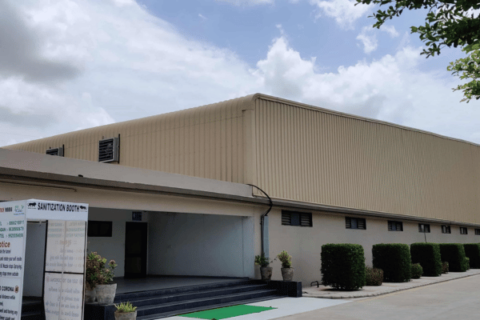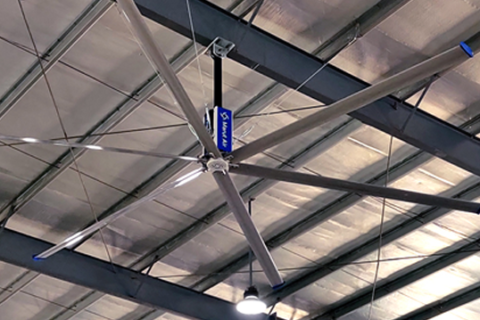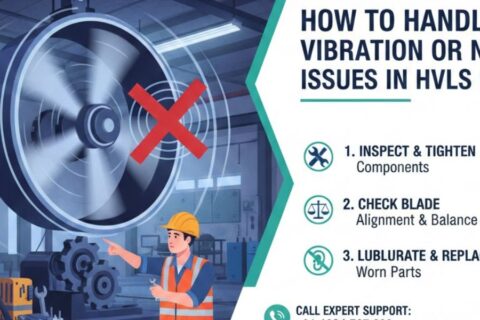Industrial cooling systems are fundamental for keeping up with ideal temperatures in different industrial cycles and conditions. These systems prevent overheating, guaranteeing machinery and items stay protected and effective at working temperatures.
Why Industrial Cooling Systems Are Essential
Industrial cooling systems are vital for preventing equipment failure, improving operational efficiency, and assuring product quality by managing temperatures within processes and machinery. Cooling systems protect equipment from heat damage, minimize costly process downtime and lower energy expenses.
- Preventing equipment failure: Cooling systems reduce the temperature of the machinery and components, such as electric motors. Heat can cause equipment to overheat and brake, or even fail prematurely due to wear and tear caused by overheating.
- Increasing efficiency and productivity: Keeping temperatures in check allows machines and operations to run better. This stabilizing improves overall production efficiency and productivity.
- Ensuring the quality of the produced product: Precision temperature management is essential for many industrial processes to avoid defects and to ensure the final product meets quality standards.
- Reducing costs: Good cooling reduces operating costs, repair costs, and energy bills.
- Data and infrastructure protection: Cooling systems, like a cooling tower for a data center, are imperative to avoid overheating of IT infrastructure.
4 Common Types of Industrial Cooling Systems and Their Related Solutions
Evaporative Cooling Systems
Evaporative cooling systems are notable in enterprises where water availability is abundant. These systems cool the air by evaporating water and then spreading it throughout the industrial environment. Practical and energy-efficient evaporative cooling works best in dry environments. It may be less persuasive in humid conditions, where the air’s moisture content is high.
Chilled Water Systems
In businesses like food processing, pharmaceuticals, and data centres that require exact temperature control, chilled water frameworks are regularly utilized. Water is circled through an organization of lines in the wake of being cooled by a device in this system. The warmed water is then sent back to be cooled again. Chilled water systems can be custom-fitted to meet explicit cooling prerequisites and are profoundly productive. They are ideal for environments where maintaining constant temperatures is crucial to both product quality and process efficiency.
Air-Cooled Systems
Air is the primary medium for heat exchange in air-cooled systems. When compared to water-based systems, these are typically simpler to set up and keep up because they don’t need a water supply or complicated piping. Air-cooled systems are often utilized in conditions where water protection is fundamentally important or where water assets are restricted.
Also Read: Benefits of Helicopter Fans for Large Spaces
Cooling Towers
Power plants, treatment facilities, and compound handling offices are all examples of industries where cooling towers are utilized. These systems send excess heat from the industrial process to the atmosphere by evaporating water. Due to their high heat dissipation efficiency, cooling towers are ideal for heavy-duty industrial applications. They can be incorporated with other cooling systems to improve, by and large, cooling limits and proficiency.
How to Choose the Right Cooling System for Your Industry
When choosing the right industrial cooling system, you should determine the heat load, environmental conditions (like humidity and temperature) and available utilities of your facility. You should consider several factors when choosing the right cooling system for your industry:
Key factors to consider
- Heat Load
- Environmental Conditions
- Utility Availability
- Energy Efficiency
- Cost
- Maintenance & Reliability
- Scalability
Conclusion
The appropriate industrial cooling solution is determined by the facility’s particular requirements, including the required cooling capacity, environmental conditions, and resources. Every system enjoys its benefits and limits, yet with the right choice and execution, modern cooling systems can extraordinarily upgrade functional effectiveness and guarantee the life span of gear and items. Explore quality industrial cooling options at Marut Air.
FAQs About the Types of Industrial Cooling Systems
Question 1. What are the main types of industrial cooling systems?
Answer. There are four main types of industrial cooling systems, which include evaporative cooling systems, air cooling and ventilation systems, chilled water cooling systems and cooling tower systems.
Question 2. Which industrial cooling system is the most energy efficient?
Answer. One of the most energy-efficient cooling systems is the evaporative cooling system because it uses natural water evaporation to cool air and consumes significantly less power than traditional air conditioning systems.
Question 3. What is the difference between evaporative cooling and mechanical refrigeration?
Answer. The key difference between evaporative cooling and mechanical refrigeration is that evaporative cooling uses water evaporation to lower the air temperature naturally, whereas mechanical refrigeration uses compressors and refrigerants.
Question 4. How do I choose the right cooling solution for my facility?
Answer. Choosing the right cooling solution depends on factors like facility size, heat load, humidity level, equipment type, and energy goals.
Question 5. Are Marut Air cooling systems suitable for large industrial spaces?
Answer. Yes, Marut Air offers solutions, including HVLS fans, air coolers and ventilation systems that are designed to deliver powerful airflow and consistent cooling even in large scale environments like warehouses, manufacturing plants and workshops.





